Pipes and Fittings: Material Types
JIANZHI is one of the leading manufacturers of galvanized malleable cast iron pipe fittings in China. Our modern factory is equipped with the latest plant and machinery and skilled workmanship in testing equipment, as well as rigorous testing at all stages of manufacture, ensuring the high standards of precision now associated with all "JIANZHI" fittings. Our partners are large stockists and distributors in China and all parts of the world, especially in Malaysia. We strive to be an efficient and reliable partner for our customers. Our aim is to continuously upgrade our production technology in order to provide our wholesalers/distributors and consumers with superior quality at reasonable prices.
Next, we will introduce you to the types of materials that are available for pipes and fittings.
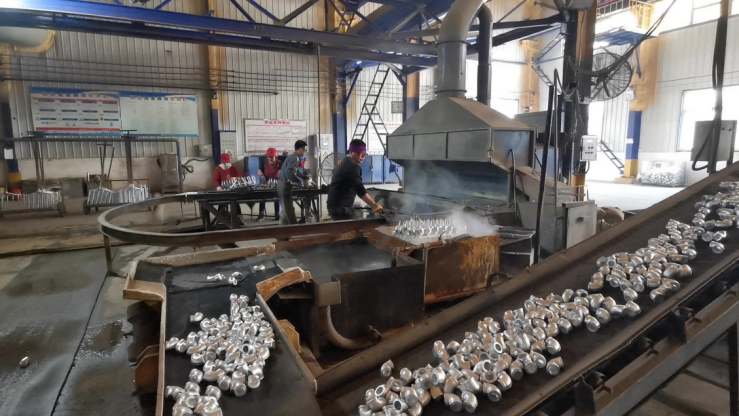
Pipes and fittings are used in a wide range of applications with different and unique requirements. They are therefore made of different materials for different applications, such as galvanized iron, UPVC, PVC, PPR, PB, HDPE, stainless steel, copper, MSCL, ABS, etc.
The materials used to manufacture pipes and fittings are essential for each application and use.
Galvanized Malleable Iron (GI) Pipes and Fittings
Galvanized Malleable Iron, more commonly known as GI pipe and fittings, is a type of iron coated with zinc as a protective coating.
The coating is applied to both the outside and inside of the pipe, providing an internal and external protective layer for the iron.
GI pipes and fittings are often used where the strength of steel is required and are primarily used for outdoor piping.
Some of the Galvanized Malleable Iron GI Pipes and Fittings that JIANZHI supplies to Malaysia are
Galvanized Iron Fittings
Galvanized 90-degree elbows
Galvanized Reducers
Galvanized Caps
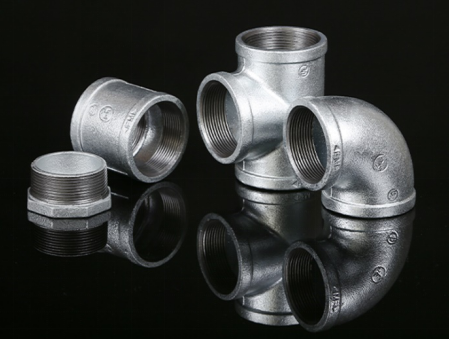
High Density Polyethylene (HDPE) Pipes and Fittings
This is the most commonly used material for pipe and fittings because of its versatility and performance. HDPE is a compound made from petroleum extracts and is known for its robust appearance, flexibility, yet great durability and very good chemical and environmental resistance.
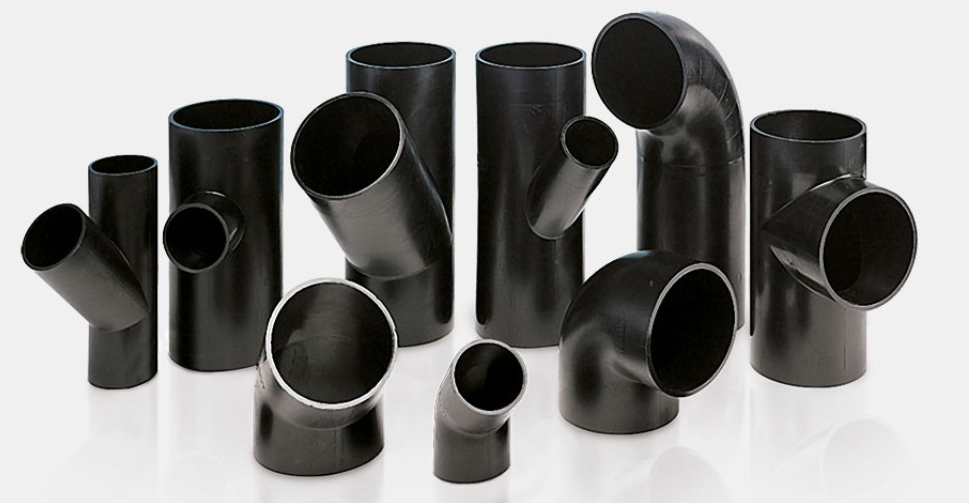
Polypropylene Pipes and Fittings (PPR/PP)
Polypropylene or Polypropylene PPR/PP pipes and fittings are a thermoplastic polymer, usually white/gray in color.
Excellent resistance to corrosion, chemical leaching and resistance to most damage and stresses such as impact and freezing, environmental friendliness and the ability to use hot melt uniform joints are some of the reasons why most engineers choose this material as a piping solution.
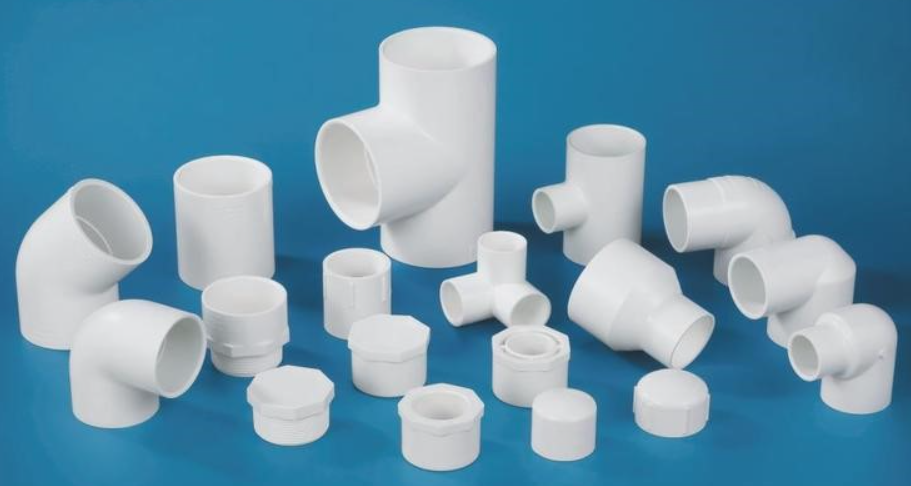
Stainless Steel (SS) Fittings
Stainless steel pipe and fittings are made from stainless steel, also known as inox steel or inox, an alloy steel containing at least 10.5% chromium by weight.
Known for its resistance to corrosion, stainless steel has long been used in plumbing, drinking water and wastewater treatment.
304 and 316 stainless steels are the standard materials used in the manufacture of stainless steel piping and fittings.
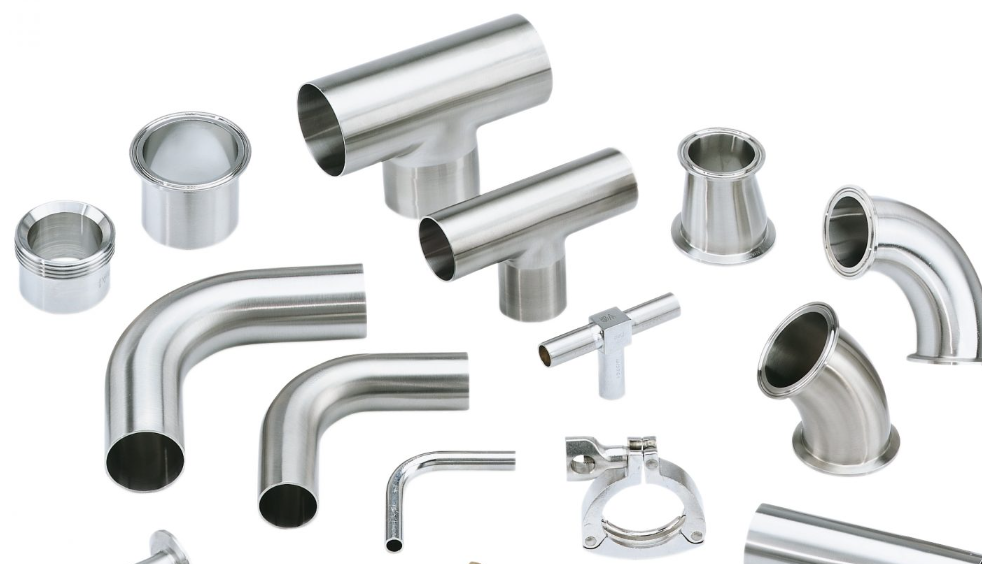
Mild Steel Cement Lined (MSCL) Pipes
Mild Steel Cement Lined (MSCL) pipe is manufactured by coating the inside of the pipe with a mortar-like compound that acts as a barrier between the carbon steel pipe and the process.
MSCL pipe and fittings are commonly used for potable water and wastewater applications.
It is also used when the process fluid is likely to corrode ordinary carbon steel pipe.
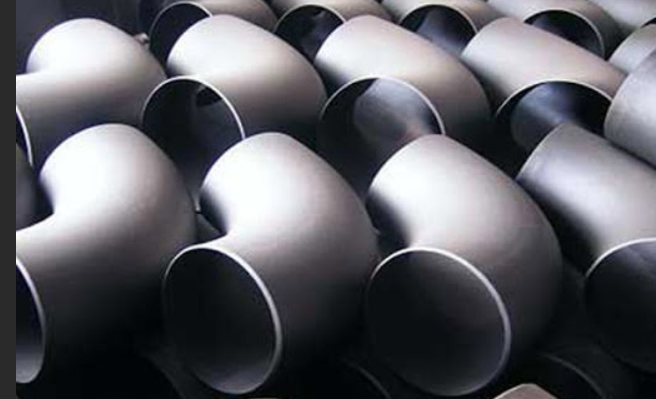
Acrylonitrile Butadiene Styrene (ABS) Pipes and Fittings
Acrylonitrile Butadiene Styrene (ABS) is a common thermoplastic polymer. It has a glass transition temperature of about 105°C.
The nitrile groups are polar and attract and bond to each other, making ABS stronger than ordinary pure polystyrene.
Styrene gives it a glossy and impervious surface.
It is known for its impact resistance and toughness and is lightweight.
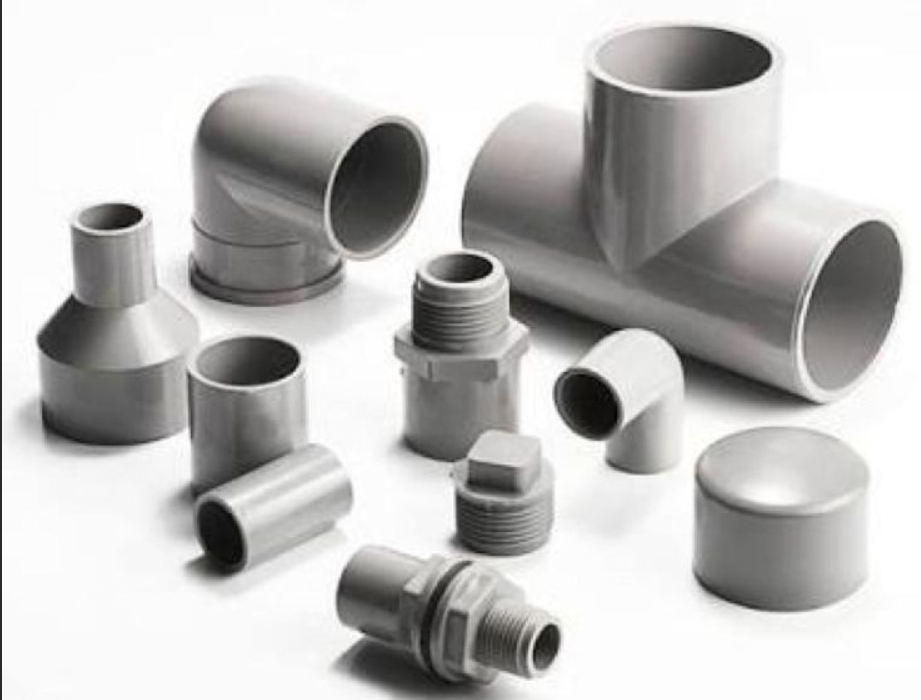
Ductile Iron (DI) Fittings
Ductile iron fittings are manufactured by centrifugal casting in metal or resin-lined molds. Pipes and fittings are typically lined with cement mortar and coated with a combination of zinc, bitumen, or water-based coatings.
Ductile iron, on the other hand, has greater strength but similar corrosion resistance to cast iron.
As with most ferrous materials, ductile iron fittings are susceptible to corrosion and their service life is therefore dependent on the corrosiveness of the surrounding soil.
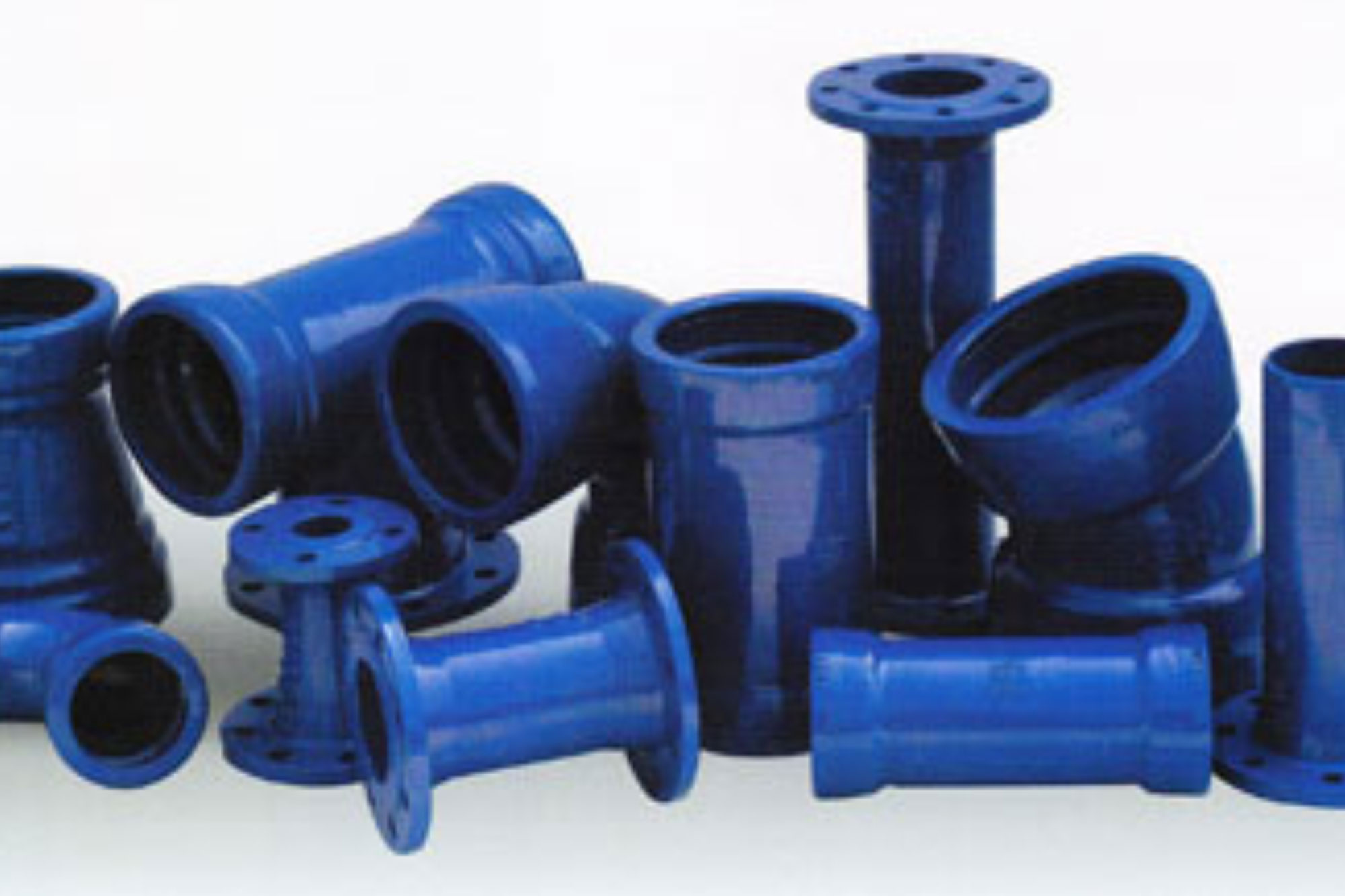
Cast Iron Fittings
Cast iron fittings are the type of steel typically used for high-pressure applications.
The thick walls and strength of the steel are well suited to the high-pressure applications typically found in wastewater treatment and gas fields.
Polyvinyl Chloride (PVC) Piping and Fittings
Polyvinyl chloride, or more commonly known as PVC pipe and fittings, is a plumbing material produced by the polymerization of vinyl chloride monomer VCM.
PVC pipe and fittings are often preferred by plumbers because they are lightweight, inexpensive and require little maintenance.
It can be joined to fittings using solvent adhesives or butt fusion (heating technology) to create a seamless joint and prevent leaks.
Typically used for non-potable water, PVC is usually gray in color, unlike its close cousin UPVC, which is usually white and safer for potable water transport.
Unplasticized Polyvinyl Chloride (UPVC / PVC-U) Pipes and Fittings
A close relative of PVC, but without plasticizers.
The lack of plasticizers makes it harder and less flexible, but safer for transporting potable water.
UPVC pipe has a smoother inner wall for smoother water flow, can withstand a wide range of temperatures and pressures, and is strong, rigid and cost effective.
UPVC pipe and fittings are commonly used in underground, storm water, sewer and water supply piping systems.
Copper Tubing and Fittings
Copper tubing is primarily used for hot and cold water distribution in homes and for refrigerant lines in HVAC systems.
Copper has the best corrosion resistance of any pipe material, but it has become increasingly expensive over the years as raw materials for its production have become more limited.
Typically, copper tubing is joined using crimping or soldering techniques, both of which are reliable and leak resistant.
There are three main types of copper pipes and fittings used by consumers, namely Type K, Type L and Type M, ranging from the thickest to the thinnest.
Ceramic Clay Pipe (VCP)
Ceramic Clay Pipes are pipes made from a mixture of clay and shale that are fired at high temperatures to achieve vitrification, eventually turning them into a hard ceramic type and impervious to water compounds.
VCP has a long service life and is resistant to most industrial and domestic effluents.
The production of VCP is very environmentally friendly as the raw material used to produce it is mainly clay as the main ingredient.
Brass Pipes and Fittings
Brass is a metal alloy consisting of a mixture of copper and zinc.
Brass in piping is used where there is low friction and where sparks are less likely to occur, such as near flammable or explosive materials.
The corrosion resistance of brass pipes and fittings is important in applications where high temperatures, the presence of chlorides, or variations in water quality are present.
CPVC Pipes & Fittings
The main difference between CPVC SCH80 Pipe & Fittings and its cousin PVC SCH80 is its excellent fire resistance. When selecting a thermoplastic pipe material, the fire performance of the material is usually considered.
Without the benefit of flame retardants and smoke suppressants, CPVC inherently exhibits excellent fire performance in terms of limited flame spread and low smoke generation.
CPVC SCH80 has a flame resistance of 482°C compared to 399°C for PVC SCH80, compared to paper which burns at 232°C.
The flame resistance of CPVC SCH80 is 60 LOI (limiting oxygen index) versus 45 for PVC SCH80.
CPVC does not contain additives that can provide a nutrient source for fungal growth.
JIANZHI brand fittings are known for their quality and durability in China and abroad, . They can be found in piping systems throughout the world and this popularity is due to the company's reputation for producing consistently high quality products and a worldwide distribution system.
Branded fittings are manufactured with the understanding that care must be taken to ensure that no breakage or leakage occurs anywhere in use, and each fitting undergoes a multi-stage inspection to ensure accuracy and durability in all types of industrial, agricultural, domestic and other plumbing installations. Our registered trademark "JIANZHI" appears on all our fittings.
Request a free quotation and more information
Products Category
Products
Related Information
SAFER
PRODUCT INFO
ABOUT JIANZHI
TECH DATA
Contact Us
E-mail: sales1@jianzhi-fitting.com
Tel: +86 18698027872
Office In Tianjin:
Heping District, Tianjin, China.
Production Base 1:
Chifeng, Inner Mongolia, China.
Production Base 2:
Tangshan City, Hebei Province, China.
Production Base 3:
Schelei Street,Baicoi City,Prahova County,Romania
Service email: info.ro@jianzhi-fitting.com
Sales email: market.ro@jianzhi-fitting.com
Tel: +40(755)011 849
